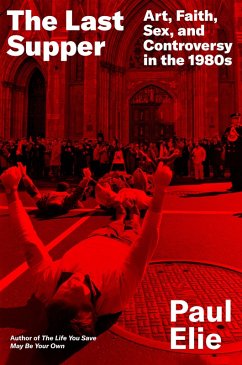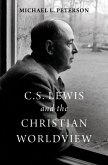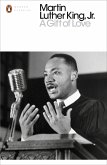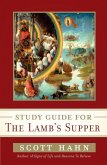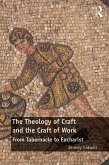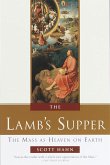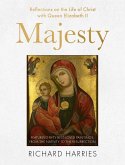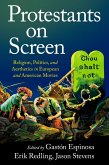This enthralling group portrait brings to life a moment when popular culture became the site of religious strife-strife that set the stage for some of the most salient political and cultural clashes of our day.
Circa 1980, tradition and authority are in the ascendant, both in Catholicism (via Pope John Paul II) and in American civic life (through the Moral Majority and the so-called televangelists). But the public is deeply divided on issues of body and soul, devotion and desire.
Enter the figures Paul Elie calls "cryptoreligious." Here is Leonard Cohen writing "Hallelujah" on his knees in a Times Square hotel room; Andy Warhol adapting Leonardo's The Last Supper in response to the AIDS pandemic; Prince making the cross and altar into "signs o' the times." Through Toni Morrison, spirits speak from the grave; Patti Smith and Bruce Springsteen deepen the tent-revival intensity of their work; Wim Wenders offers an angel's-eye view of Berlin; U2, the Neville Brothers, and Sinéad O'Connor reckon with their Christian roots in music of mystic yearning. And Martin Scorsese overcomes fundamentalist ire to make The Last Temptation of Christ-a struggle that anticipates Salman Rushdie's struggle with Islam in The Satanic Verses.
In Elie's acclaimed first book, The Life You Save May Be Your Own, Catholic writers ventured out into the wilds of postwar America; in this book, creative figures who were raised religious go to the margins of conventional belief, calling forth controversy. Episodes such as the boycott sparked by Madonna's "Like a Prayer" video and the tearing-up of Andres Serrano's Piss Christ in Congress are early skirmishes in the culture wars-but here the creators (not the politicians) are the protagonists, and the work they make speaks to conflicts that remain unsettled.
The Last Supper explores the bold and unexpected forms an encounter with belief can take. It traces the beginnings of our postsecular age, in which religion is at once surging and in decline. Through a propulsive narrative, it reveals the crypto-religious imagination as complex, credible, daring, and vividly recognizable.
Circa 1980, tradition and authority are in the ascendant, both in Catholicism (via Pope John Paul II) and in American civic life (through the Moral Majority and the so-called televangelists). But the public is deeply divided on issues of body and soul, devotion and desire.
Enter the figures Paul Elie calls "cryptoreligious." Here is Leonard Cohen writing "Hallelujah" on his knees in a Times Square hotel room; Andy Warhol adapting Leonardo's The Last Supper in response to the AIDS pandemic; Prince making the cross and altar into "signs o' the times." Through Toni Morrison, spirits speak from the grave; Patti Smith and Bruce Springsteen deepen the tent-revival intensity of their work; Wim Wenders offers an angel's-eye view of Berlin; U2, the Neville Brothers, and Sinéad O'Connor reckon with their Christian roots in music of mystic yearning. And Martin Scorsese overcomes fundamentalist ire to make The Last Temptation of Christ-a struggle that anticipates Salman Rushdie's struggle with Islam in The Satanic Verses.
In Elie's acclaimed first book, The Life You Save May Be Your Own, Catholic writers ventured out into the wilds of postwar America; in this book, creative figures who were raised religious go to the margins of conventional belief, calling forth controversy. Episodes such as the boycott sparked by Madonna's "Like a Prayer" video and the tearing-up of Andres Serrano's Piss Christ in Congress are early skirmishes in the culture wars-but here the creators (not the politicians) are the protagonists, and the work they make speaks to conflicts that remain unsettled.
The Last Supper explores the bold and unexpected forms an encounter with belief can take. It traces the beginnings of our postsecular age, in which religion is at once surging and in decline. Through a propulsive narrative, it reveals the crypto-religious imagination as complex, credible, daring, and vividly recognizable.
Dieser Download kann aus rechtlichen Gründen nur mit Rechnungsadresse in D ausgeliefert werden.

